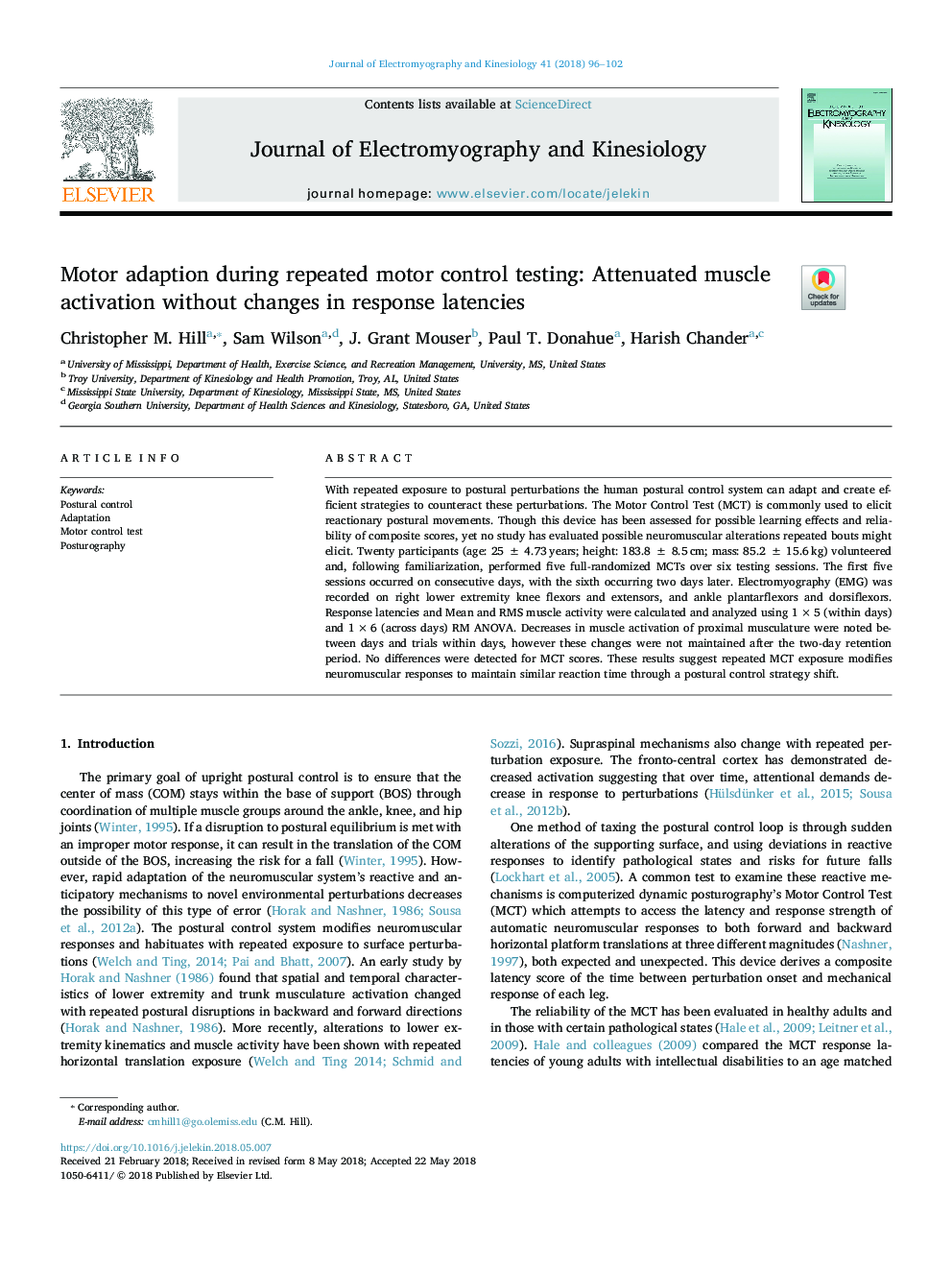| Article ID | Journal | Published Year | Pages | File Type |
|---|---|---|---|---|
| 8799771 | Journal of Electromyography and Kinesiology | 2018 | 7 Pages |
Abstract
With repeated exposure to postural perturbations the human postural control system can adapt and create efficient strategies to counteract these perturbations. The Motor Control Test (MCT) is commonly used to elicit reactionary postural movements. Though this device has been assessed for possible learning effects and reliability of composite scores, yet no study has evaluated possible neuromuscular alterations repeated bouts might elicit. Twenty participants (age: 25â¯Â±â¯4.73â¯years; height: 183.8â¯Â±â¯8.5â¯cm; mass: 85.2â¯Â±â¯15.6â¯kg) volunteered and, following familiarization, performed five full-randomized MCTs over six testing sessions. The first five sessions occurred on consecutive days, with the sixth occurring two days later. Electromyography (EMG) was recorded on right lower extremity knee flexors and extensors, and ankle plantarflexors and dorsiflexors. Response latencies and Mean and RMS muscle activity were calculated and analyzed using 1â¯Ãâ¯5 (within days) and 1â¯Ãâ¯6 (across days) RM ANOVA. Decreases in muscle activation of proximal musculature were noted between days and trials within days, however these changes were not maintained after the two-day retention period. No differences were detected for MCT scores. These results suggest repeated MCT exposure modifies neuromuscular responses to maintain similar reaction time through a postural control strategy shift.
Related Topics
Health Sciences
Medicine and Dentistry
Orthopedics, Sports Medicine and Rehabilitation
Authors
Christopher M. Hill, Sam Wilson, J. Grant Mouser, Paul T. Donahue, Harish Chander,
